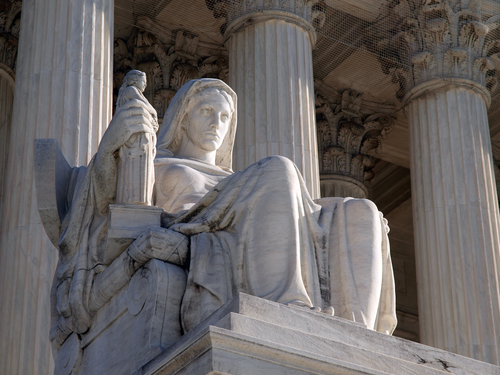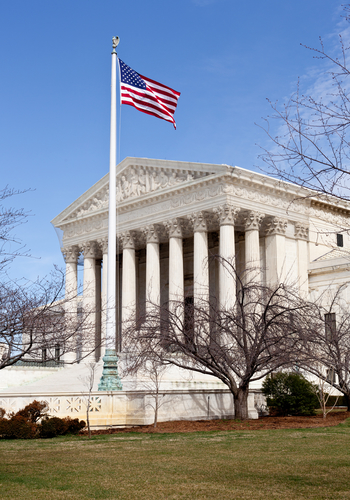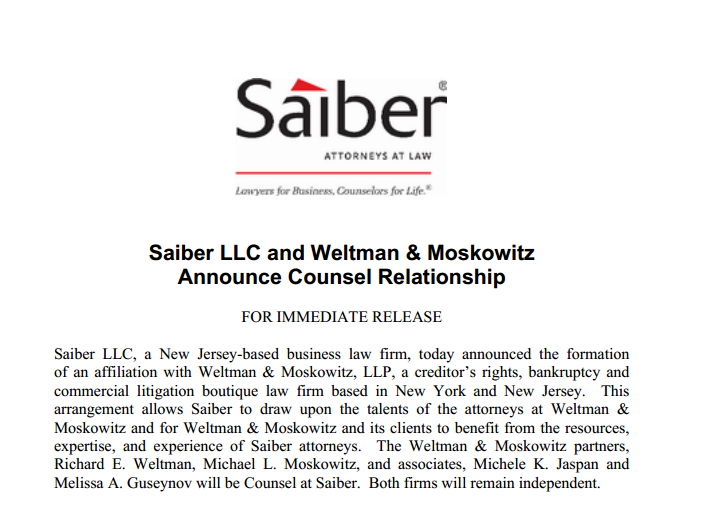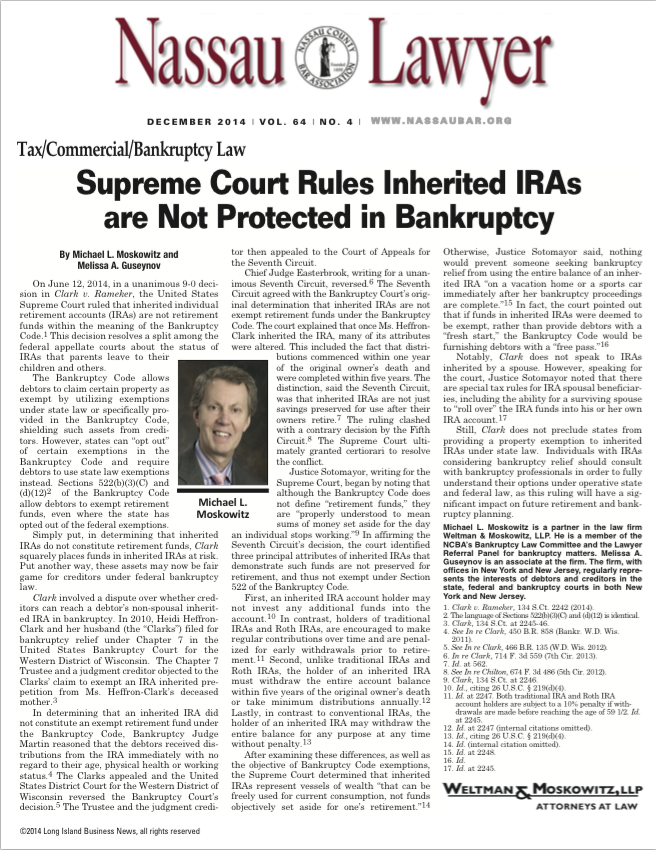RECENT SUCCESS STORY: Zealous Advocacy Secures Payment in Full for Client in A&P Chapter 11 Cases
By Richard E. Weltman and Melissa A. Guseynov
 When creditors learn that an entity that owes them money has filed for bankruptcy protection, they often fear their claims will remain unpaid or that they will only collect pennies on the dollar. And while that is typically the outcome for unsecured claimants, in certain circumstances creditors may be able to recover a substantial portion of their debt. In fact, as further described below, with effective counsel, a creditor may recover its claim in full.
When creditors learn that an entity that owes them money has filed for bankruptcy protection, they often fear their claims will remain unpaid or that they will only collect pennies on the dollar. And while that is typically the outcome for unsecured claimants, in certain circumstances creditors may be able to recover a substantial portion of their debt. In fact, as further described below, with effective counsel, a creditor may recover its claim in full.














 New York’s Real Property Actions and Proceedings Law (“RPAPL”) § 1304 requires a mortgage lender to notify a residential home borrower of an impending foreclosure action at least 90 days before the foreclosure action is commenced, using specific statutory language, printed in 14 point type, sent by registered or certified mail, as well as by first class mail, to the borrower. The emphasis of this article is the peril which will befall a lender if it fails to timely register the statutorily mandated notice.
New York’s Real Property Actions and Proceedings Law (“RPAPL”) § 1304 requires a mortgage lender to notify a residential home borrower of an impending foreclosure action at least 90 days before the foreclosure action is commenced, using specific statutory language, printed in 14 point type, sent by registered or certified mail, as well as by first class mail, to the borrower. The emphasis of this article is the peril which will befall a lender if it fails to timely register the statutorily mandated notice. 














